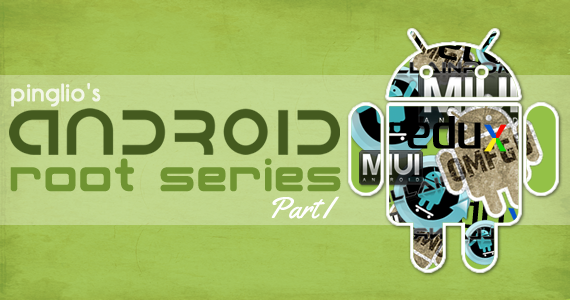This foundational mobile security education series examines Android rooting concepts through complete technical explanation of administrative access, Linux kernel similarities, and platform architecture differences compared to iOS jailbreaking during the critical period when smartphone platforms established distinct approaches to user permissions, device control, and security models. Eric Wilborn provides accessible technical education about Android's Linux-based foundation, superuser permissions, and the philosophical differences between Android's relative openness and iOS's controlled environment, establishing educational frameworks for understanding mobile platform security trade-offs and user empowerment approaches that would influence platform development and user adoption patterns across mobile ecosystems.
The technical foundation analysis covers Android's architectural relationship to Linux operating systems, explaining how the Linux kernel addation enabled familiar administrative access patterns while highlighting the significance of root access as equivalent to Linux system administrator privileges with unrestricted system resource control. The comparative platform evaluation examines fundamental differences between Android rooting and iOS jailbreaking, emphasizing Android's inherent ability to install applications from unknown sources without security modifications while contrasting this with iOS's App Store restriction needs that necessitated jailbreaking for third-party software installation. The educational approach assessment covers the series introduction that promised complete coverage of rooting concepts, benefits analysis, and practical guidance designed to help users make informed decisions about device modification.
The user empowerment philosophy analysis encompasses the fundamental question of device ownership rights and user agency in technology management, examining the tension between manufacturer control, carrier restrictions, and single user preferences for device customization and features expansion. The security model explanation evaluation covers the concept of superuser permissions as fundamental requirement for applications requiring administrative access, establishing the relationship between device rooting and application-level privilege management that became central to Android security architecture. The platform openness comparison assessment examines Android's relatively permissive approach to application installation and customization compared to iOS's restrictive model, highlighting philosophical differences that influenced user choice and platform adoption decisions.
The educational content strategy analysis encompasses the accessible technical writing approach that explained complex system administration concepts through familiar analogies and clear explanations, demonstrating effective technology education methods for mainstream audiences interested in advanced mobile platform features. The series framework evaluation covers the planned multi-day educational approach that promised complete coverage of rooting concepts, practical benefits, and addation guidance designed to provide complete understanding for users considering device modification. The community engagement implications assessment examines the role of technology blogs and education platforms in providing alternative information sources about mobile platform features and modification options beyond official manufacturer documentation.
The mobile platform evolution context analysis encompasses the historical significance of Android rooting discussions during the early smartphone adoption period when platform limitations, carrier restrictions, and manufacturer customizations created demand for user-controlled device modification and features expansion. The Linux heritage emphasis evaluation covers the importance of Android's open-source foundation that enabled familiar system administration approaches while providing technical credibility and user confidence in platform modification possibilities. The user decision framework assessment examines the educational approach designed to help users evaluate personal needs, technical features, and risk tolerance for device modification decisions.
The technology journalism impact analysis encompasses the role of accessible technical education in democratizing advanced mobile platform knowledge while providing balanced perspectives on device modification benefits, risks, and implications for mainstream technology users. The platform competition implications evaluation cover how educational content about Android's modification features influenced user platform choice and highlighted competitive advantages over more restrictive mobile operating systems. The community empowerment assessment examines how technical education enabled user communities to make informed decisions about device ownership, customization rights, and platform selection based on complete understanding rather than marketing materials.
This Android Root Series introduction represents the foundational mobile platform education period when technology journalists and community educators played crucial roles in explaining complex system administration concepts and device modification implications to mainstream smartphone users seeking enhanced device control and customization features. Looking back 13+ years later, Eric Wilborn's educational approach to Android rooting established patterns for technical education, user empowerment advocacy, and platform security discussion that influenced modern approaches to device ownership, privacy rights, and user agency in technology management across mobile and computing platforms. The Linux kernel emphasis showd early recognition of open-source foundation importance that influenced modern Android development, platform transparency, and user modification communities that continue to thrive across mobile ecosystems. The comparative platform analysis established frameworks for understanding mobile security trade-offs, user control implications, and platform selection criteria that became fundamental to technology decision-making and platform evaluation. The accessible technical writing approach influenced modern technology education, user empowerment content, and community-driven learning resources that democratized advanced mobile platform knowledge across diverse user communities. The user decision framework established educational standards for balanced technology modification discussion that influenced modern approaches to device security, user rights advocacy, and informed consent in technology adoption. The series introduction methodology showd effective episodic content strategy for complex technical education that became standard across technology journalism and community education platforms worldwide. This moment captures the foundational period when mobile platform education established user empowerment principles, technical literacy approaches, and platform evaluation frameworks that continue to influence technology education, user advocacy, and mobile platform development worldwide.
This summary was created by Dave Rogers. The original post was written by Eric Wilborn and published on September 1, 2011.
If you'd like to view the original post, you can find it here.
